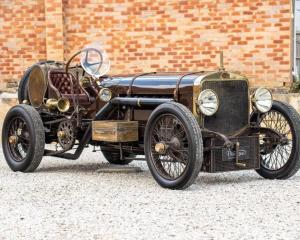
Ambulance personnel members of First Union and Amalgamated Workers Union New Zealand across the country are taking part in a second withdrawal of labour today following strikes on Tuesday.
From 4am today until 4am tomorrow union members across the country will miss work for the first four hours of their shifts.
The industrial action comes after breakdowns in negotiations with the government to increase Crown funding to ambulances by $60 million, which would cover 100% of Hato Hone St John’s operational costs.
First Union Dunedin delegate Ken Burton said there were five ambulances to cover from Owaka to Oamaru and only three of them were available after 9pm.
He said Dunedin city had the same resources available to it as Rotorua did.
"For some strange reason they think the utilisation is the same."
An ambulance crew could respond to anywhere between five to 12 jobs in one shift.
"The other night [when I started a shift] there were 12 jobs waiting, three of which were emergency ones.
"It’s a long time when you’re going job to job without any breaks. You often get hangry (hungry and angry)."
Staff were starting to feel like a liability rather than an asset.
First Union southern regional secretary Paul Watson said lower levels of industrial action were not making a difference.
This was the first time in the 140-year history of St John that workers had decided on a withdrawal of labour.
"This is not insignificant. These are people that don't instinctively walk off the job, they’re health professionals, they’re there to care for the community.
"They’re saying to the public we want you to start caring for us and let the government know this is unsatisfactory."
St John deputy chief executive Dan Ohs said St John had contingencies in place for ensuring it could respond to emergencies during the strike action.
Saturday was typically a busy day for St John because people engaged in social and recreational activities including sport, travel and DIY activities.
Those pursuits could result in injuries, he said.
The public could still call 111 for a medical emergency or a serious injury, but for non-emergencies Mr Ohs asked the public to seek advice from Healthline, and urgent care centre or pharmacy first.











